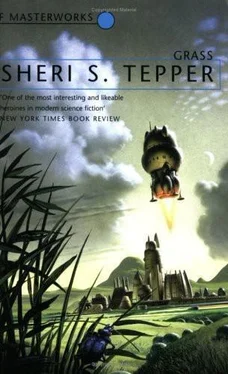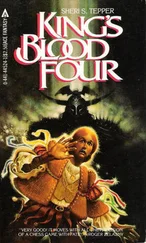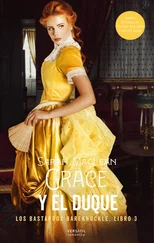Sheri Tepper - Grass
Здесь есть возможность читать онлайн «Sheri Tepper - Grass» весь текст электронной книги совершенно бесплатно (целиком полную версию без сокращений). В некоторых случаях можно слушать аудио, скачать через торрент в формате fb2 и присутствует краткое содержание. Город: London, Год выпуска: 2002, ISBN: 2002, Издательство: Gollancz, Жанр: Фантастика и фэнтези, на английском языке. Описание произведения, (предисловие) а так же отзывы посетителей доступны на портале библиотеки ЛибКат.
- Название:Grass
- Автор:
- Издательство:Gollancz
- Жанр:
- Год:2002
- Город:London
- ISBN:9781857987980
- Рейтинг книги:4 / 5. Голосов: 1
-
Избранное:Добавить в избранное
- Отзывы:
-
Ваша оценка:
- 80
- 1
- 2
- 3
- 4
- 5
Grass: краткое содержание, описание и аннотация
Предлагаем к чтению аннотацию, описание, краткое содержание или предисловие (зависит от того, что написал сам автор книги «Grass»). Если вы не нашли необходимую информацию о книге — напишите в комментариях, мы постараемся отыскать её.
Grass — читать онлайн бесплатно полную книгу (весь текст) целиком
Ниже представлен текст книги, разбитый по страницам. Система сохранения места последней прочитанной страницы, позволяет с удобством читать онлайн бесплатно книгу «Grass», без необходимости каждый раз заново искать на чём Вы остановились. Поставьте закладку, и сможете в любой момент перейти на страницу, на которой закончили чтение.
Интервал:
Закладка:
“I’ll get them.”
The boy turned and left, the priest following him, calling, “Dry clothes in something waterproof.”
“Do you have everything you need?” Marjorie asked Brother Lourai.
He shrugged, elaborately, as though to ask who knew what was needed. “We each brought a change of clothes and boots. Brother Mainoa raided our dry stores to bring what food he could. We could use something to cook in or heat water in.”
“There.” She pointed at a miniature cooker in the pile. “And over there are the saddlebags. Before we came to Grass, Rigo and I thought we might be taking extended rides. We brought camping gear, as we would have done for endurance rides at home.”
“Home. Where was your home?”
“Lesser Britain. And then, later, Old Spain. After Rigo and I were married.”
“Old Spain?” Rillibee asked.
“The southwestern province of Western Europe.”
“Are there many Old Catholics there?”
“Many. More than anywhere else. Sanctity has not had good luck with converts in Spain.”
“Where I lived, only a long time before, there were Old Catholics.”
“Where was that?”
“In New Spain, the Middle American Provinces, Joshua, my father, said our province was once called Mexico.”
“Your father was Old Catholic? But you are one of the Sanctified.”
He shook his head no. “I am whatever Joshua was. But I don’t know what he was. He wasn’t Old Catholic, I know that.” He leaned against the horse she had told him to ride, imitating her stance, stroking the animal as she did hers, feeling the stiff, glossy hair slide beneath his fingers. “He loved trees. Miriam loved trees, too.” Tears came and he blinked them away. He had seen no trees on this place, except for the small copse near the dig. There had been no trees at Sanctity. Sometimes he thought if he could only see trees, then he would not feel so alone.
Tony and Father James returned with more supplies. Brother Mainoa, looking pensive, came in to help them sort the supplies into the saddlebags, including the two hamper-sized containers that Irish Lass was to carry. When they were done, they stood looking at one another as though reluctant to take the next, inevitable step. It was Brother Mainoa who broke the silence.
“I’ll lead if I may, Lady Westriding. For a little while. After that, it shouldn’t be necessary. If you’ll tell me how to steer?”
Marjorie explained the use of reins and legs and rode out beside him to make sure he understood. Within moments they had left the garden trail and were pushing through tall grass, each barely able to see the nearest rider. Then, almost before they had had a chance to be annoyed by the lash of the thick growth, they came through the tough stems into lower grass and turned purposefully toward the northeast. They rode silently except for Brother Mainoa’s occasional querulous, “Tell me again what I do to get farther right?” And then, after he had been told two or three times, he did not ask again. They rode for some time in silence except for the soft plop of hooves and the rustle of the grass.
Marjorie, riding alongside Brother Mainoa, thought she heard him speak and leaned closer to whisper, “What was that. Brother?” She heard the same sound again. A snore. He was riding asleep while Blue Star went placidly along the sides of starlit hills and down winding shadowed vales as though she were on her way home, her ears forward as if hearing someone there calling her name.
Rigo woke with gritty eyes and a sour taste in his mouth. For a moment he did not remember where he was; then, seeing the flash of a flick bird across the tall windows and hearing a grass peeper call repeatedly from the grass garden, he remembered Grass. It was the soft, rose-colored curtains blowing in the morning wind that told him he was in Eugenie’s room rather than in his own bedroom adjoining Marjorie’s. The bed beside him was empty.
Eugenie came in like the head of a small tray-bearing comet, billowing hair and silken draperies in a turbulent tail behind her. “The girl doesn’t get here until later, Rigo, so I made you coffee my own self.” She plumped his pillow, sat beside him on the bed, and leaned prettily forward to pour. The cups were pink, curved like the petals of a flower. The cream was steaming.
“Where did you get cream?” he asked. “I haven’t had cream since we’ve been here.”
“Never you mind.” She pouted, flushing with pleasure at his pleasure. “I have my ways.”
“No, really, Eugenie. Where did you get it?”
“Sebastian brings it to me. His wife has a cow.”
“He never said a word to me about—”
“You didn’t ask, that’s all.” She stirred his cup and handed it to him.
“You flirted with him.”
She didn’t deny it, merely smiled through her lashes at him. sipping at her own cup.
He started to say something about flirting, about Stella’s flirting, and the memory came back. The cup dropped from his hand and rolled across the thick carpet and he struggled to get out of the clinging sheets.
“Rigo!” It was a protest.
“I forgot about Stella,” he cried. “I forgot!”
“You didn’t forget,” she told him. “You told me, last night.”
“Oh, damn you, Eugenie. That’s not what I meant.” He went away from her into the bathroom. She heard water running as she sat staring into her cup, not drinking anymore. If he only hadn’t remembered. For a little while.
He went straight to the kitchen, then to Marjorie’s room, and then Tony’s. Only after finding all three places empty did he think of the tell-me. There he found a message, brief but complete: Tony and his mother had gone. They had taken the horses. They had gone to find Stella. Rigo howled, half in anger, half in pain, making the crystal ornaments complain in icy voices. Where would Marjorie have gone? Tony hadn’t said, but there was only one logical starting point for a search. Bon Damfels’ place.
He flushed, remembering how he had left bon Damfels’ place the day before, begging, pleading with them to help him find his daughter, while Stavenger, at first frostily cold and then heated with anger, had accused him of undisciplined, un-Huntly behavior; while Stavenger and Dimoth and Gustave told him to go home and mourn Stella in private and quit shouting about her; while bon Haunser and bon Damfels aunts and cousins pointed derisive fingers at him. Despite all that, the people of Klive were not at a Hunt today, and he would return to Klive.
In the garage, he found both aircars partially disassembled, with Sebastian hovering over a case of new parts.
“What in the name of God… ?”
“Your driver said the stabilizer was malfunctioning yesterday,” Sebastian said, startled. “We’ve had trouble with both of them, and since there is no Hunt today…”
Rigo bit back a roar of outrage. “Is there any other vehicle here? Or in the village?”
“No, sir. I can have this one reassembled in an hour or two. If you must travel before then, perhaps someone from Commons…”
Persun Pollut called his father, but Hime Pollut was out of his shop. No one knew when he would return. Roald Few was not available. Three other persons who Persun called were at the port — a long-awaited shipment had come in. Persun made exaggerated swoops with his eyebrows, indicating annoyance.
As for Rigo, while hours passed, he seethed, barely able to contain his frustration at Marjorie’s passing slowly, slowly away to someplace where he might never find her.
13
When Marjorie and the others arrived at Klive, Marjorie rode directly to the Kennel Gate. It was the closest place she knew to the first surface, one of the two familiar approaches to the mansion. Above the first surface was the terrace, and fronting on the terrace were the reception rooms. She was halfway across the terrace before someone saw her and moved swiftly to intercept her. Sylvan.
Читать дальшеИнтервал:
Закладка:
Похожие книги на «Grass»
Представляем Вашему вниманию похожие книги на «Grass» списком для выбора. Мы отобрали схожую по названию и смыслу литературу в надежде предоставить читателям больше вариантов отыскать новые, интересные, ещё непрочитанные произведения.
Обсуждение, отзывы о книге «Grass» и просто собственные мнения читателей. Оставьте ваши комментарии, напишите, что Вы думаете о произведении, его смысле или главных героях. Укажите что конкретно понравилось, а что нет, и почему Вы так считаете.












